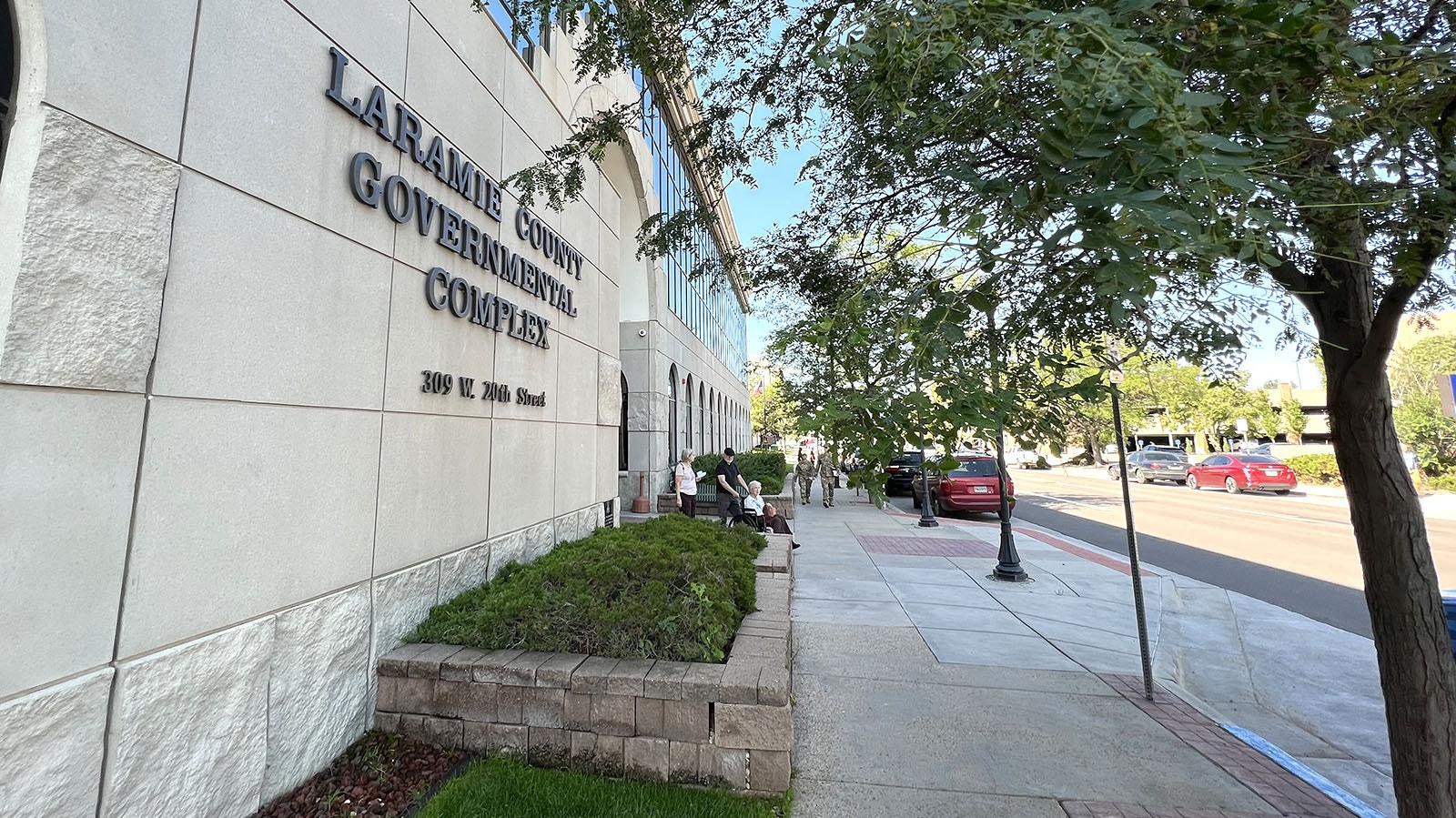A Wyoming District Court judge was wrong to deny a convicted dad-beater achance to argue for the bloody sneakers and $699 in cash seized during arrest to be given back to him, the Wyoming Supreme Court ruled Tuesday.
Robert Cook Bunten III, 47, is serving an eight- to 10-year prison sentence at the Wyoming Honor Farm for severely beating his father in Cheyenne in 2021.
The man’s father had multiple broken bones, two brain bleeds, fluid-filled lungs and many large bruises. He was apparently left alone on the floor of his home for 18 hours after the beating, newspapers reported at the time.
Laramie County District Court Judge Catherine Rogers sentenced Bunten in 2022, after Bunten pleaded guilty to aggravated assault. His guilty plea came in return for dismissing a related burglary charge alleging Bunting had stolen thousands of dollars from his dad the day of the beating.
Rogers also ordered Bunten to pay $4,533.97 in restitution, but she didn’t address the fate of Bunten’s seized $699 while outlining restitution, court documents say.
Where Are My Shoes?
Months after his sentencing, Bunten asked his sentencing judge to have his bloody tennis shoes and $699 in cash — both seized upon arrest, according to the evidentiary affidavit — returned to him.
There’s no documentation in the record of how or when law enforcement seized the money or shoes, court documents say.
The judge declined, saying her court does not have the jurisdiction to hear that request because a motion for that kind of relief after conviction is a civil remedy, and because Bunten didn’t cite any case law giving the court authority to grant his request.
Bunten appealed in March of this year to the Wyoming Supreme Court.
Citing Wyoming law, court rules and case law, the Wyoming Supreme Court sent the case back to the Laramie County District Court for another look. The judge was wrong not to hear evidence on whether Bunten could get his things back, the high court added in its Tuesday ruling.
“The district court’s conclusions about its jurisdiction and authority to act on Mr. Bunten’s motion for return of seized property were contrary to our case law, Wyoming statutes and the Wyoming Rules of Criminal Procedure,” the decision says.
Sometimes Guns Don’t Go Back
Wyoming statute 7-2-105(c) requires police to give back property to a lawful order without court action unless the property is still evidence of a crime, the person requesting it wouldn’t be possessing it lawfully or the interest in it is in dispute.
If any of those factors are in play, the law enforcement agency may file a petition for an order to show cause against the requester. For example, a sheriff in 2003 filed a petition to dispose of a gun instead of giving it back to a felon who wanted the gun back. Many felons cannot lawfully possess guns.
A person arguing that he’s still entitled to the property can launch a civil action in the court that oversaw his criminal case, Wyoming’s court rules say.
Though that rule isn’t directed at post-conviction motions, state and federal case law both have applied it there, the ruling adds.
Prove It
When a person launches that civil action, the state agency holding onto his possessions has to prove to the court that it has a good reason for keeping his things from him.
“The burden on the government (to prove this) is heavy because there is a presumption that the person from whom the property was taken has a right to its return,” says the order.
Bunten’s motion for his bloody sneakers and cash back was “properly filed,” the high court added.
The next step is for the District Court judge to either read written arguments on the matter or hold a hearing, but the high court said it would be improper for it to order one or the other method.
“Because the district court did not believe it had jurisdiction or the legal authority to consider Mr. Bunten’s motion, it did not address the procedure for determining the evidentiary issues,” says the high court’s ruling. “It is not proper for us to comment on the district court’s future choice of procedure when it has yet to consider the specific circumstances in this case.”
Clair McFarland can be reached at clair@cowboystatedaily.com.





